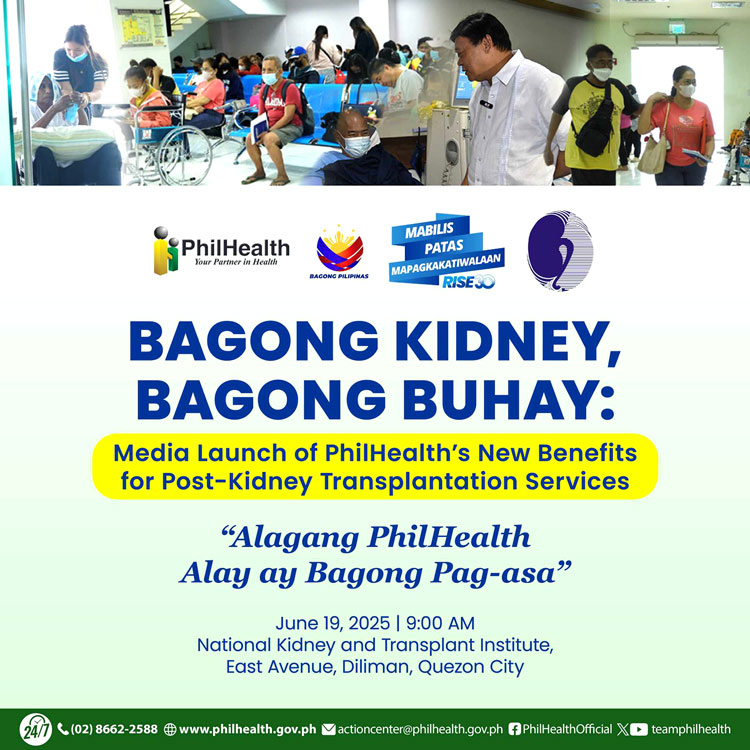CEBU CITY – The Department of Health (DOH) has launched an information campaign on organ donation and transplantation, targeting families of individuals considered as potential organ donors.
The DOH encourage families to consider organ donation of deceased relatives, including those who have been declared legally and medically brain dead, to help others in need of transplantation.
Dr. Jonathan Neil Erasmo, chief of local health support division of DOH in Central Visayas, said the information drive aims to heighten consciousness on the benefits of organ donation. “We have other potential parts of our body which will be shared to the rest of our people needing such opportunity for them to grow, to live and to have quality of life. We have been seeing some information with regards to how do we prolong the lives of the individuals,” Erasmo said.
“Seeing those people who are already deceased, they have the opportunity to extend the lives of other people and share their gift of life so that those who are still alive can have quality of life,” he added.
Gerard Paolo Villanueva, transplant coordinator of Philippine Network for Organ Sharing (PhilNOS), said the need of organ transplantation is rising due to growing number of cases of hypertension and diabetes. “Siempre nandiyan ang pagtaas ng risk na magkaroon tayo ng end-stage organ diseases. So siyempre umaabot na tayo sa end-stage organ diseases, hindi na gumagana ang organs niyo. Ang sagot diyan ay kailangan mapalita,” he said.
World Health Organization 2017 data showed that deaths caused by various end-stage organ diseases involved up to 230,000 Filipinos, which may be addressed through organ transplantation. However, organ donation from brain dead patients had been dismally low in the country.
Under DOH Administrative Order 2010-0019, all tertiary hospitals and trauma centers are required to have a procurement transplant coordinator. In the administrative order, all patients deemed to be brain dead or in a state of imminent brain dead must be referred to procurement transplant coordinator of clinical donor coordinator, according to Villanueva.
Republic Act 7170 or the Organ Donation Act of 1991, later amended by RA 7885, allows organ and tissue donations from donors who have been declared brain dead. The same DOH issuance created PhilNOS in June 2010 to act primarily as the central coordinating body for all organ donation and transplantation activities in the country.
Villanueva said the program is aimed at having a “national self-sufficiency” of organ donation and transplantation. “The awareness campaigns of the DOH also aimed to prevent organ trafficking by enhancing policies and systems in support of ethical and legal organ and tissue donation and transplantation,” he said.
He said the law does not allow foreigners to receive organs from non-related Filipino donors because the program discourages “incentivized” organ donations, where living organ donors not related to the recipient are motivated to donate their organs for monetary reason.
Renal disease ranks ninth among other diseases that have a high mortality rate in the country, according to Angelie Brook Cejudo, senior health program officer of DOH-7.
The DOH has been distributing information kits to the public which included an organ donor card registration form to drum up the drive to acquire more potential donors who wanted to give out parts of their bodies once they passed away. (John Rey Saavedra)
Like Us on Facebook: The Mindanao Examiner
Like Us on Facebook: The Zamboanga Post
Follow Us on Twitter: Mindanao Examine
Read And Share Our News: Mindanao Examiner Website
Mirror Site: Mindanao Examiner Blog
Digital Archives: Mindanao Examiner Digital
Media Rates: Advertising Rates



